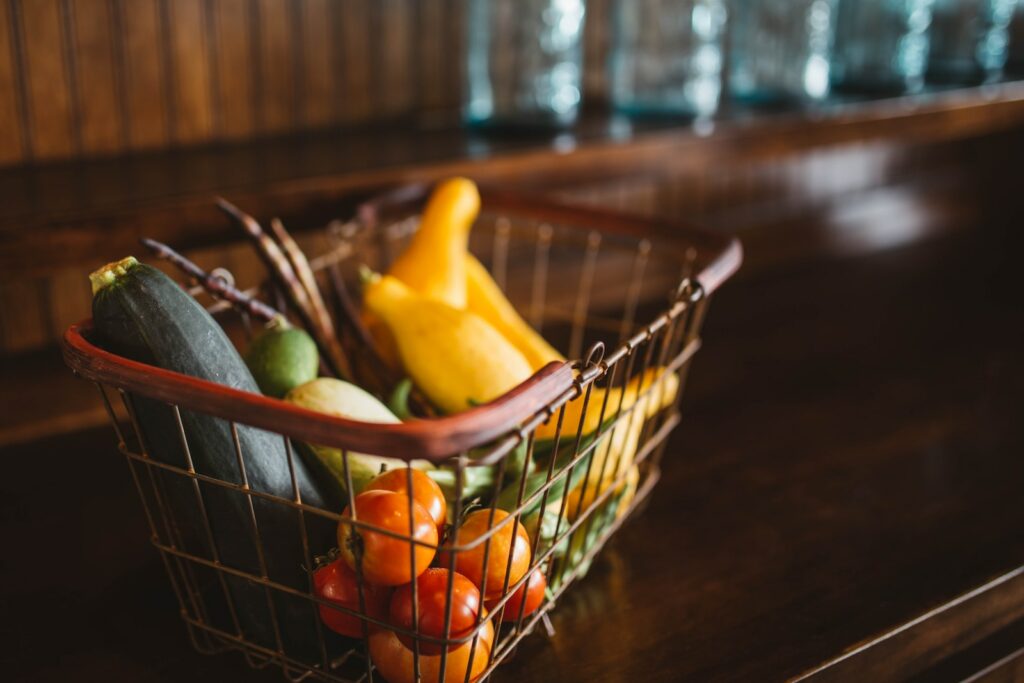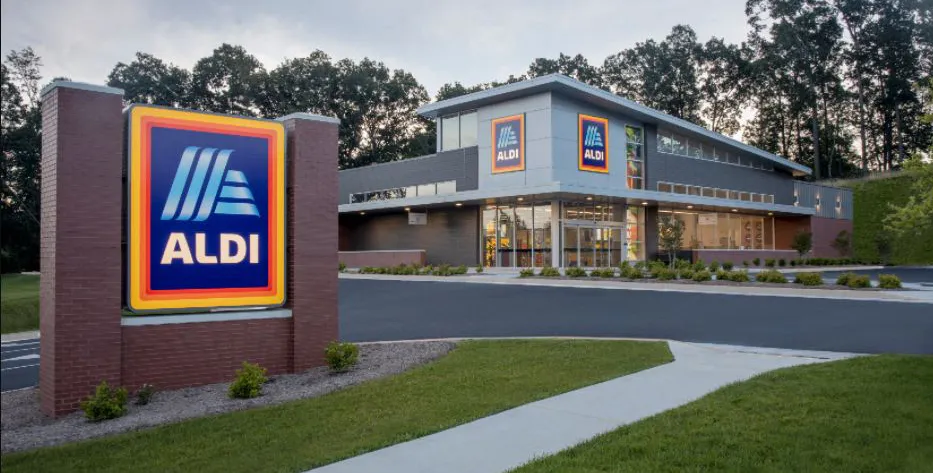Want to know more about Aldi’s competitors? As the first preference of urban customers and peasants, Aldi has received more and more attention from consumers. However, many people complain about the price and quality problems, especially in recent years. Some competitors have come up with similar pricing strategies as Aldi, but high-quality and delicate products have already occupied the market.
The competitors don’t just include competing supermarkets and grocers. Grocery stores like Walmart, Sam’s Club, and Costco are Aldi’s competitors. See the following Aldi competitors list to understand more of your market.
What is Aldi?
Aldi is a budget hypermarket that supplies a restricted assortment of basic items at reasonable rates. The company was founded in Germany and has expanded to the United States, where it also has a large presence. The company has its headquarters in Batavia, Illinois, although it has stores. It competes with other discount retailers like Walmart and Target.
Aldi stores can be found in Australia, Brazil, and Germany, concerning the United States. In the U. S., the corporation has nearly 1,000 locations. Aldi’s business strategy is based on providing a restricted variety of low-cost supermarket commodities. The company does not recognize discounts or print advertisements for its services at top prices. Aldi Group’s gross revenues in 2021 were just over 134 billion dollars, a 15.3 percent raise over the past year.
While most grocery stores sell thousands of products in their stores each day, Aldi only sells about 2000 different items every day at each location (and even fewer during slow times like winter). This means that shoppers have to carefully plan their shopping trips to fit everything they need into one trip to Aldi rather than multiple trips to other grocery stores throughout the week or month.
Who are Aldi’s biggest competitors?
Aldi is a German-based grocery chain that has become popular in the U.S. for its low prices, limited selection, and no-frills approach to shopping. It also has a reputation for being difficult to find, but there are more than 1,600 Aldi stores throughout the country, including some in states where you wouldn’t expect them. Aldi’s competitors include Walmart, Costco, Kroger, and Trader Joe’s. Here’s how they compare:
Kroger
Kroger is the main Aldi competitor in the United States. It operates a chain of supermarkets and convenience stores, and several other retail chains in addition to its flagship supermarket chain. Bernard Kroger began the enterprise in 1883 with a small grocery shop in Cincinnati, Ohio. In 2015, Kroger’s total sales were $115 billion. The company currently has more than 2,600 supermarkets under various names across 35 states and the District of Columbia.
Costco and Kroger are the two main competitors of each other. Both organizations are supermarket dealers with over 40 years of experience. They both provide clients with reasonably priced products. On the Fortune global 500 list of U.S. businesses by income, the organization is ranked 30th. In 2018, it was named America’s favorite grocery store in Consumer Reports’ annual survey of more than 50,000 readers.
Publix
Publix is an Aldi competitor in the grocery business. The company is best known for its high-quality products and bakery items and its customer service. It also sells various other items, such as frozen food and home items, dairy, and meat.
Aldi was founded in Germany in 1869 as a discount grocery store by brothers Karl and Theo Albrecht. The first Aldi store opened in 1962 in Germany. Nowadays, there are almost 1,600 stores throughout United America and over 1,000 in the United Kingdom.
Publix has been growing steadily since the early 1900s when George W. Jenkins founded it. Today it operates over 1,100 stores throughout Florida and Georgia and has locations throughout Alabama, South Carolina, and North Carolina.
Aldi has been expanding rapidly throughout the United States since 2010, when it entered the market with its first store in Iowa City, Iowa. The chain now has more than 1,600 U.S. locations but plans to open up to 35 new stores each week until 2020 to reach 2,500 stores nationwide by 2021, three years from now.
WalMart
The biggest Costco competitor is Wal-Mart Retailers. It is a flagship telecommunications firm based in the United States that operates a series of major discount stores and warehouse facilities, featuring Walmart in Canada. Sam Walton created the corporation in 1962, which was organized on October 31, 1969, and listed on the New York Stock Market in 1972. Bentonville, Arkansas, is the company’s headquarters.
The organization is responsible for Walmart in Canada and the U.s, and its giant brand is branded Supercenters. It also has Wal-Mart Supercenters and, Neighborhood Market grocery stores; Sam’s Club warehouse membership clubs.
The corporation operates megastores, outlet stores, and supermarkets in 28 countries beyond the United States, with complete enterprises in South Africa, Argentina, Canada, and China. It also has a joint venture with Sainsbury’s supermarkets to operate Sainsbury’s Fresh & Easy stores using the same model as its American Sam’s Club stores.
In 2008 Wal-Mart became the largest private employer in Mexico after purchasing 51% of Cifra’s shares for $955 million from Carlos Slim Helu. As of January 31, 2015, Walmart employs 2.2 million people worldwide. In 2014 it generated $485 billion in revenue.
Safeway
Safeway is an Aldi competitor, but it also has its unique appeal. It is an established grocery store chain that’s part of the Albertsons family. It has more than 2,300 stores across the country, including locations in Canada and Mexico. The company has struggled with competition from Walmart, Target, and Amazon. But Safeway still has some strengths that make it worth considering as an alternative to Aldi.
Safeway stores are larger than Aldi stores, about 50 percent larger on average, so they can offer customers more variety in their produce section and meat department. They also have a better selection of fresh flowers, baked goods, and deli items than Aldi. In addition to fresh groceries, Safeway offers meal kits through its Kitchens of Good brand and frozen foods such as pizzas and other meals you can cook at home.
In June 2015, Cerberus Capital Management announced that it had reached an agreement to acquire Albertsons from SuperValu for $9.4 billion. The deal received regulatory approval by August 22, 2015, and was finalized on January 2, 2016, when Albertsons became a subsidiary of A.B. Acquisition LLC. On April 18, 2017, Safeway announced plans to close its Lakewood location before May 19 due to declining sales at the location.
Whole Foods Market


One of Aldi’s biggest competitors. Whole Foods Market, Inc. is a grocery store company in the United States specializing in meat, fresh produce, seafood, and dairy. The company was founded in 1978 in Austin, Texas, by John Mackey and Renee Lawson Hardy and remained headquartered in Austin. As of September 2015, it has 408 locations worldwide.
Whole Foods Market’s core values are co-founder and co-CEOs John Mackey’s book “Conscious Capitalism.” In 2018, the organization was named to Fortune’s list of the Best Places To work For for 20 years in a row. It was also rated one of the top ten jobs in the country in 2013 by Fortune. Whole Foods Market won multiple awards from the Human Rights Campaign for its workplace policies; it was ranked among the best places to work for LGBT equality by Equality Index for six years running.
Whole Foods has built its business on quality and service, not price. It’s more than willing to charge customers more for better products, even if they’re not last as long or taste as good as their cheaper counterparts. The stores are designed to make shopping easy you can find everything you need in one place without having to run around looking for something else and have experts who can help customers choose what’s best for them.
Trader Joe’s
Trader Joe’s is a specialty retail supermarket chain based in Canada and the United States. Well known for its assortment of unique, high-quality products at low prices. Trader Joe’s pioneered the concept of offering a wide selection of natural and organic foods at reasonable prices. The company operates over 400 retail locations worldwide.
Trader Joe’s is known for its unique culture. Which includes employees dubbed “crew members,” who receive benefits such as paid time off, health care coverage, and other perks. Fortune magazine and Working Mother magazine have named it one of the greatest environments to work. Focusing on recruiting disabled people.
In 2002, Trader Joe’s was sold to German investors after its U.S. operation was unable to pay back loans owed by the corporation. The sale was announced on March 27, 2002, with German-based Deutsche Nahrungsmittel Handels-GmbH & Co K.G. (DNH) purchasing all shares in Trader Joe’s from German retailer Aldi Nord for USD 1 billion. The company also offers many private-label products, including Trader Jose’s tequila, Trader Ming’s rice noodles, and Trader Giotto’s olive oil. The company says it offers exclusive items that can’t be found anywhere else.
Trader Joe’s has over 400 locations in the U.S., including more than 100 stores branded as “Trader Joe’s Collectors Edition” since January 2011. By early 2013, it had reached over $10 billion in annual sales and is now one of America’s fastest-growing retailers. The chain is known for offering unique food products not usually found at other supermarkets at low prices. Its name derives from its founder’s nickname, “Joe.”
Where do Aldi’s competitors sell more of their products?
Aldi’s competitors sell more of their products in the United States than Aldi does. This is not surprising since Aldi only has around 1,600 stores in the U.S. While its competitors each have thousands or tens of thousands of stores.
When it comes to groceries and household items, Aldi’s competitors sell more of their products at Walmart, Kroger, and Publix than they do at Aldi. As we saw above, Publix sells more of its products at Walmart than any other store.
Kroger sells more at Target than any other store, but Target sells more at Kroger than anywhere else. Kroger also sells more at Best Buy than anywhere else. Best Buy sells more at Kroger than anywhere else, and Walmart sells more at Best Buy than any other store. Aldi does not sell as much at any other retailer as it does at Walmart. Which probably makes sense given that Walmart is the biggest retailer in America.
How well-known are Aldi’s closest competitors?
Aldi is the closest competitor to Walmart, with 1,600 stores in Southeastern U.S. Aldi’s stores are smaller than Walmart’s, but they have a similar selection of groceries and other products.
Aldi also carries a wide selection of private-label and exclusive brands, like Trader Joe’s. The company’s low prices make it popular with cost-conscious shoppers. Aldi doesn’t accept credit cards or checks from customers, only cash or debit cards. They’ve shown an exceptional understanding on their consumers’ buying behavior.
In addition to its store-brand products, Aldi sells national brands at lower prices than other retailers typically do. For example, a gallon of milk costs about $2 at Aldi compared to about $3 at a Kroger supermarket.
A further grocery supermarket chain that interacts with Walmart is Kroger. It operates 2,500 retail locations, with outlets in all save Hawaii and Alaska. Like Walmart, Kroger offers low prices on basic household items like eggs and bread. And even lower prices on some products like milk and toilet paper.
Bottom Line
If you’re interested in one of these Aldi competitors, this report has all you need. Including company profiles and contact details. It also includes competitive landscapes for each competitor. Furthermore, there are macro-level insights into this industry at the global, country, and industry levels for 2022 and a forecast for market size. Finally, a detailed analysis of drivers, challenges, and trends prevailing in this market. The report gives readers a thorough view of the competition’s growth prospects in the coming years.





















Leave a Reply
View Comments